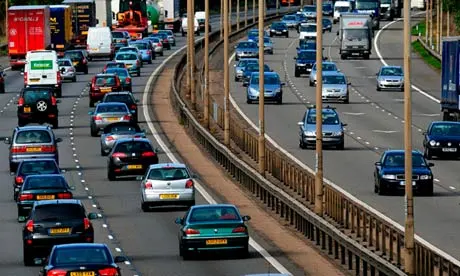
Driving is a necessary aspect of modern life, but it comes at a cost. One of the most significant costs is the pollution generated by cars and other vehicles. While many people are aware of the environmental impacts of driving pollution, there are also hidden costs that have a significant impact on society. In this blog post, we will explore the hidden costs of driving pollution on society.
What is Driving Pollution?
Driving pollution is the air pollution generated by cars and other vehicles. It is caused by the emissions from the engine, including carbon monoxide, nitrogen oxides, and particulate matter. These emissions have a significant impact on the environment and human health.
The Economic Costs of Driving Pollution
The economic costs of driving pollution are often hidden but significant. They include health care costs, environmental costs, damage to infrastructure, and lost productivity.
Health care costs are one of the most significant economic costs of driving pollution. Air pollution from cars and other vehicles can cause a range of health problems, including respiratory issues, heart disease, and cancer. These health problems require medical treatment, which is costly.
Environmental costs are also significant. Driving pollution contributes to climate change and can harm ecosystems, leading to biodiversity loss. These environmental impacts can result in economic costs in the form of damage to natural resources and the loss of ecosystem services.
Damage to infrastructure is another economic cost of driving pollution. Air pollution can cause damage to roads and buildings, requiring costly repairs and maintenance.
Finally, lost productivity is a hidden economic cost of driving pollution. When people are sick or absent from work due to health problems caused by air pollution, productivity suffers.
The Social Costs of Driving Pollution
In addition to economic costs, driving pollution has social costs. These costs include health impacts on vulnerable populations, environmental justice concerns, reduction in quality of life, and negative effects on tourism.
Vulnerable populations, such as children and the elderly, are particularly susceptible to the health impacts of driving pollution. These health impacts can result in lost productivity and increased health care costs.
Environmental justice concerns are also a social cost of driving pollution. Low-income communities and communities of color are often located near highways and busy roads, exposing them to higher levels of air pollution. This exposure can result in a range of health problems, exacerbating existing health disparities.
Reduction in quality of life is another social cost of driving pollution. Air pollution can make it difficult to enjoy outdoor activities and can make it harder to breathe. This reduction in quality of life can lead to increased stress and decreased well-being.
Finally, negative effects on tourism are a social cost of driving pollution. Tourists are less likely to visit areas with high levels of air pollution, reducing revenue for businesses and the local economy.
The Psychological Costs of Driving Pollution
In addition to economic and social costs, driving pollution also has psychological costs. These costs include mental health impacts, stress and anxiety, disruption of social connections, and impact on emotional well-being.
Air pollution can have significant impacts on mental health, including depression, anxiety, and cognitive decline. These impacts can reduce quality of life and increase healthcare costs.
Stress and anxiety are also psychological costs of driving pollution. Living in areas with high levels of air pollution can increase stress and anxiety, leading to a range of health problems.
Disruption of social connections is another psychological cost of driving pollution. Air pollution can make it difficult to enjoy outdoor activities with friends and family, reducing opportunities for social connection.
Finally, air pollution can impact emotional well-being, leading to feelings of frustration, anger, and despair.
Conclusion
Driving pollution has significant hidden costs on society. These costs include economic costs, such as health care costs, environmental costs, damage to infrastructure, and lost productivity. Social costs, such as health impacts on vulnerable populations, environmental justice concerns, reduction in quality of life, and negative effects on tourism. Psychological costs, such as mental health impacts, stress and anxiety, disruption of social connections, and impact on emotional well-being.
It is clear that driving pollution has a far-reaching impact on society, both in terms of the economic and social costs, as well as the psychological costs. While there is no single solution to this complex problem, there are steps that individuals and society can take to reduce the impact of driving pollution.
One of the most effective ways to reduce driving pollution is to reduce the number of cars on the road. This can be achieved through a combination of public transportation, biking, walking, and carpooling. By reducing the number of cars on the road, we can reduce the amount of pollution generated by driving.
Another way to reduce driving pollution is to invest in electric or hybrid vehicles. These vehicles generate fewer emissions than traditional gas-powered cars and can significantly reduce the impact of driving pollution.
Finally, we can all take steps to reduce our own driving pollution. This includes keeping our cars well-maintained, driving more fuel-efficiently, and reducing unnecessary trips. By taking these steps, we can all do our part to reduce the impact of driving pollution on society.
In conclusion, driving pollution has significant hidden costs on society, including economic, social, and psychological costs. It is essential that we take steps to reduce the impact of driving pollution, both as individuals and as a society. By doing so, we can create a healthier, more sustainable future for ourselves and future generations.
Do you have an old car taking up space in your garage and want to make room for something new, but don’t know what to do with it? Look no further than our cash for scrap cars Brisbane service!
